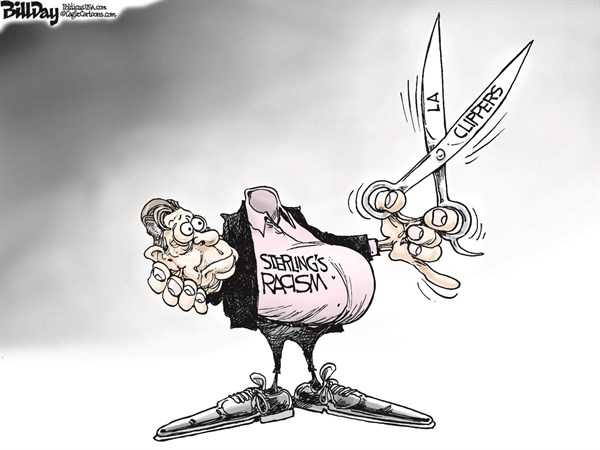n2doc
n2doc's JournalThis American Refused to Become an FBI Informant.
Then the Government Made His Family's Life Hell.
Plus, secret recordings reveal FBI threats.
—By Nick Baumann |
IT WAS AFTER 10 P.M. on July 8, 2009, when Sandra Mansour answered her cellphone to the panicked voice of her daughter-in-law, Nasreen. A week earlier, Nasreen and her husband, Naji Mansour, had been detained in the southern Sudanese city of Juba by agents of the country's internal security bureau. In the days since, Sandra had been desperately trying to find out where the couple was being held. Now Nasreen was calling to say that she'd been released—driven straight to the airport and booked on a flight to her native Kenya—but Naji remained in custody. He was being held in a dark, squalid basement cell, with a bucket for a bathroom and a dense swarm of mosquitoes that attacked his body as he slept. "You have to get him out of there," Nasreen said. But she was unfamiliar with Juba and could only offer the barest details about where they'd been held. "He's in a blue building. You've seen it. It's not far from your hotel."
Sandra remembered passing a blue warehouse ringed by tall, razor-wire-topped fences. She hung up and turned to her daughter, Tahani, who'd flown to Juba to assist in tracking down her brother: "We've gotta go look for Naji." They packed food, water, and bug spray in case they found him. Then Sandra and Tahani laced up their sneakers, retrieved a flashlight, and slipped out onto a pitch-dark, deserted road.
Sudan's long-running civil war had ended a few years earlier, and Juba, once a malarial backwater on the White Nile, was poised to become the capital of the world's newest nation, South Sudan. The city had grown into a boomtown, its expansion fueled by newly discovered oil and an influx of foreign aid. Shacks and half-built concrete structures lined its maze of narrow, trash-strewn streets, and entrepreneurs rented out converted storage sheds for as much as $100 per night. Sandra, a US government contractor, lived in one of them.
The upstart city had a Wild West atmosphere. Rifle- and grenade-wielding bandits occasionally stormed poorly guarded compounds, and violent muggings and carjackings were commonplace. It was not safe to drive after dark, let alone walk, but Sandra and Tahani were desperate. "It was a very crazy thing to do," Sandra later recalled. "But it was the first lead we had, and there was nothing that was gonna stop us."
more
http://www.motherjones.com/politics/2014/05/sudan-fbi-informant-naji-mansour-terrorism
The US Surveillance Court Hasn't Turned Down an NSA Request This Decade
Last year, the federal government asked the Foreign Intelligence Surveillance Court for the authority to conduct electronic surveillance 1,588 times. Guess how many were turned down? Not a single one.
According to a letter sent from Peter Kadzik of the Department of Justice to Vice President Joe Biden and a host of important lawmakers (Sens. Harry Reid, Mitch McConnell, and Dianne Feinstein, Congressmen Mike Rogers, John Boehner, and a few others), the FISC never turned down a government request to conduct electronic surveillance and only made modifications in 34 of the 1,588 applications. Even if those modifications were substantial, that’s a shocking statistic.
Or, maybe it shouldn’t be. In 2012, FISC didn’t turn down any of the 1,789 government applications to conduct electronic surveillance, either. Same with 2011, and 2010. The last time it turned down an application was 2009, when it denied one.
Of course, much of what happens on the FISC court is completely secret, so we’ll likely never know what the modifications were. It was only last year that we actually saw a FISC court order, when Glenn Greenwald obtained a copy of one that ordered Verizon to turn over millions’ of customers metadata.
more
http://motherboard.vice.com/read/the-us-surveillance-court-hasnt-turned-down-an-nsa-request-this-decade
Ralph Nader wants liberals to back Rand Paul. Don't do it.
By Bill Scher
This week, Ralph Nader returned to the political stage with a new book Unstoppable, whose triumphant subtitle is The Emerging Left-Right Alliance to Dismantle the Corporate State. To kick off his publicity tour, he has argued that liberals should "definitely" impeach President Barack Obama, abandon the "international militarist" Hillary Clinton, and instead embrace Sen. Rand Paul (Ky.) as a possible leader of his dream coalition.
To what end? In the book, Nader writes that by marrying the left with the libertarian right, we can cut off government support for corporations and have "honest government," "fair taxation," and "more opportunity." Nader sees relatively low-hanging fruit in opposing "sovereignty-shredding global trade agreements, Wall Street bailouts, the overweening expansion of Federal Reserve power, and the serious intrusions of the USA PATRIOT Act against freedom and privacy." He also articulates loftier, if not fully fleshed out, aspirations to "push for environmentalism," "reform health care," and "control more of the commons that we already own."
Some liberal commentators like Esquire's Charles Pierce and the American Prospect's Scott Lemieux are dismissing Nader's vision as fantastical, since the right will never join his progressive crusade. But Nader's vision should not be dismissed so quickly. He leads his book with concrete examples in the 1980s of when he put left-right coalitions together to stop an over-budget nuclear reactor project, and to pass legislation to protect whistleblowers who have uncovered wasteful government fraud.
However, coalition building requires compromise and, most critically, prioritizing one set of issues over another. The trade-offs inherent in Nader's path into Rand Paul's arms should make liberals run screaming.
more
http://theweek.com/article/index/260813/ralph-nader-wants-liberals-to-back-rand-paul-dont-do-it
Our Nuclear Infrastructure Is a Radioactive Time Bomb
The Nuclear Regulatory Commission has had a busy few weeks. Last month, thanks to Freedom of Information Act queries filed by numerous organizations, the Commission was forced to disclose a dossier of emails showing the lengths it had gone to in the immediate aftermath of the Fukushima disaster to downplay the risk of a similar catastrophe happening in the US. The correspondence showed a startling lack of preparedness.
In one example, NRC public affairs officer David McIntyre offered his opinion on what Energy Secretary Steven Chu should have done when asked by CNN whether American nuclear plants could withstand a force 9.0 earthquake: “He should just say, ‘Yes, it can.’ Worry about being wrong when it doesn't. Sorry if I sound cynical."
The documents also show a background briefing for then NRC chairman Gregory Jaczko and other commissioners that split intelligence into “public answer" and "additional technical, non-public information." In some cases the NRC withheld crucial details and misdirected the media.
It's been 35 years since an American nuclear plant has malfunctioned. At 4 AM on March 28, 1979, a relief valve failed to close at Three Mile Island, Pennsylvania, severely damaging the reactor's core. Two days later gas was released from the facility, but only exposed local residents to background doses of radiation. Some are concerned the next accident could be disastrous.
more
http://www.vice.com/read/americas-nuclear-plants-are-dry-heaving-and-waiting-to-barf-all-over-us?utm_source=vicefbus
Profile Information
Gender: Do not displayMember since: Tue Feb 10, 2004, 01:08 PM
Number of posts: 47,953






























